Wildlife Plantings
(note: Scroll Down this page to see all apples)
Deer and other wildlife are attracted to fruit of all kinds. Apples are exceptional food sources because there are many different types of apples that can ripen over an extended time. If one chooses the proper varieties, a small orchard with several types of trees can provide fruit over a period from July to late November.

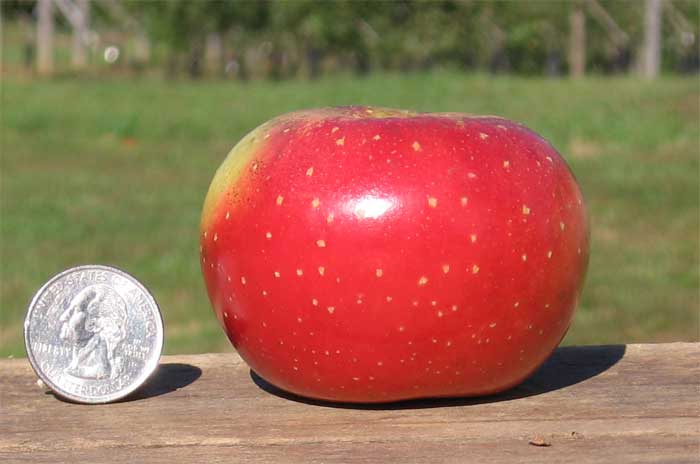
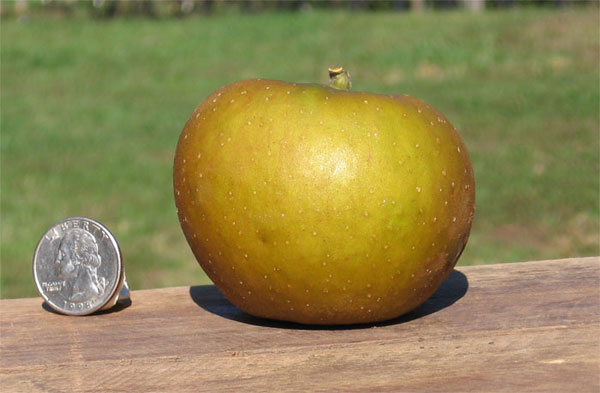
......Pineapple..................Little Benny............Keener Seedling....
Normally, wildlife plots are planted so that fruit will fall from early September to late November. The varieties also should be as disease resistant as possible and smaller sized fruit is preferred. With this is mind, here are some recommend fruit selections (in order of ripening).
pre-September preferred varieties:
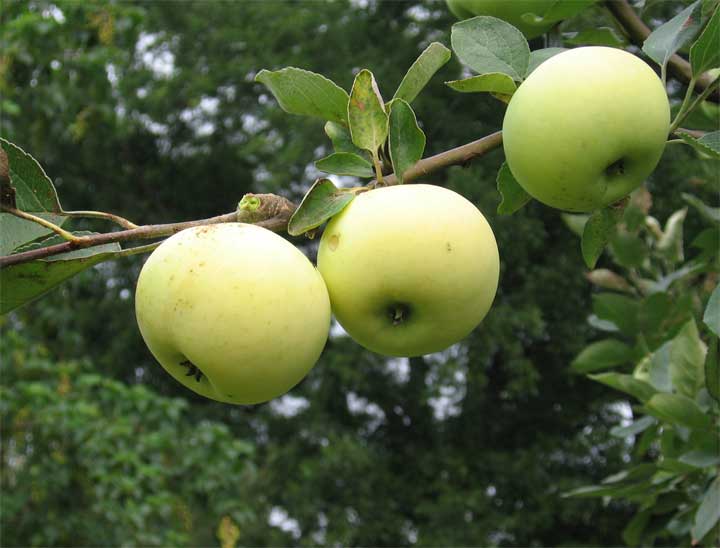
Yellow June (proliffic bearer, late bloomer)
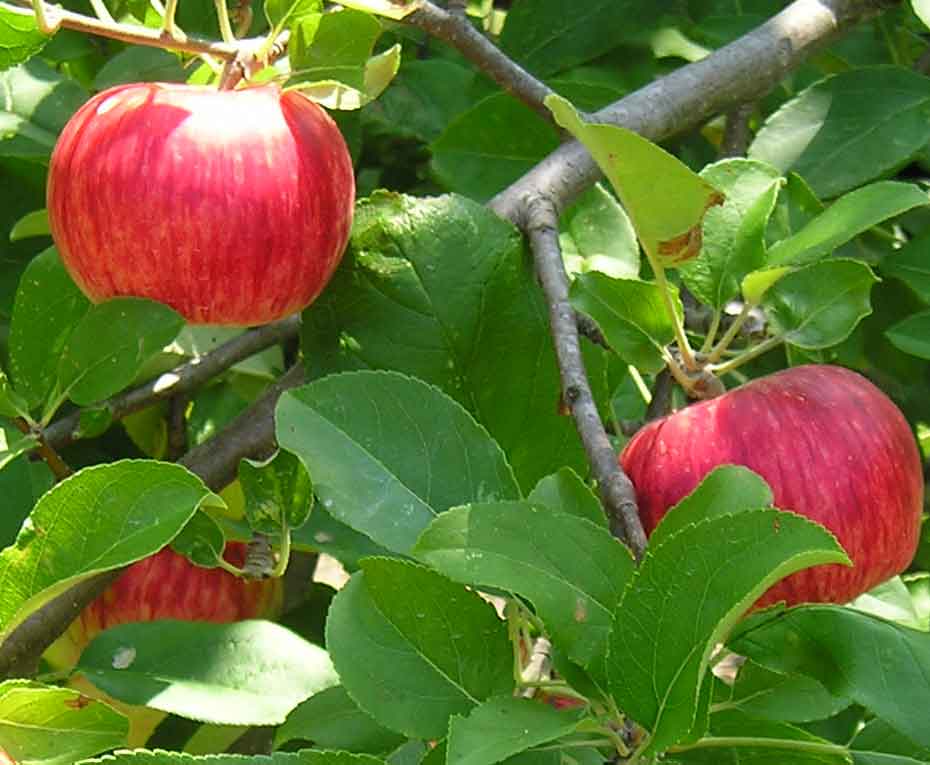
Bevan's Favorite (hardy-disease resistant tree)
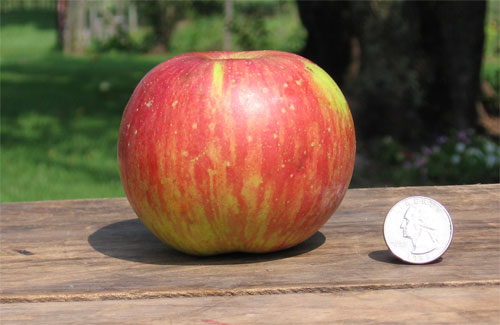
Aunt Rachel (hardy tree, especially for warmer locales)
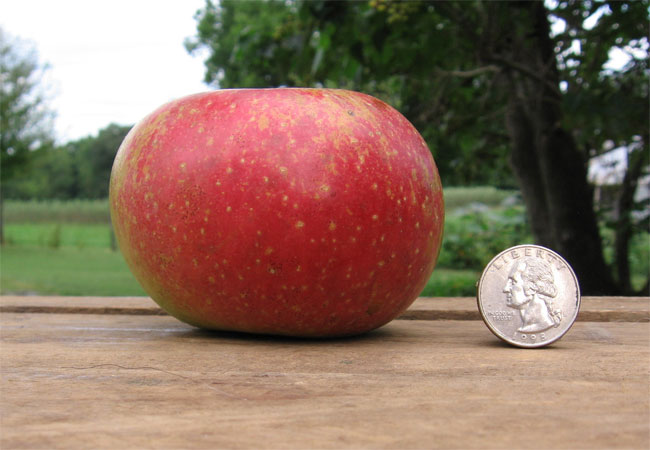
Mary Reid (very disease resistant tree, bears fruit over almost two months)
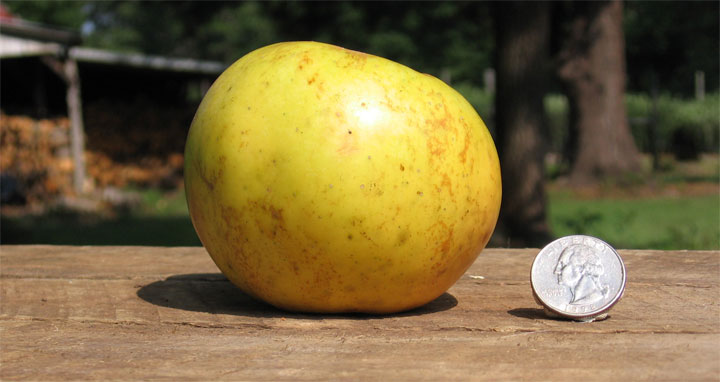
Horse (hardy tree, can be found at many old southern homesteads)
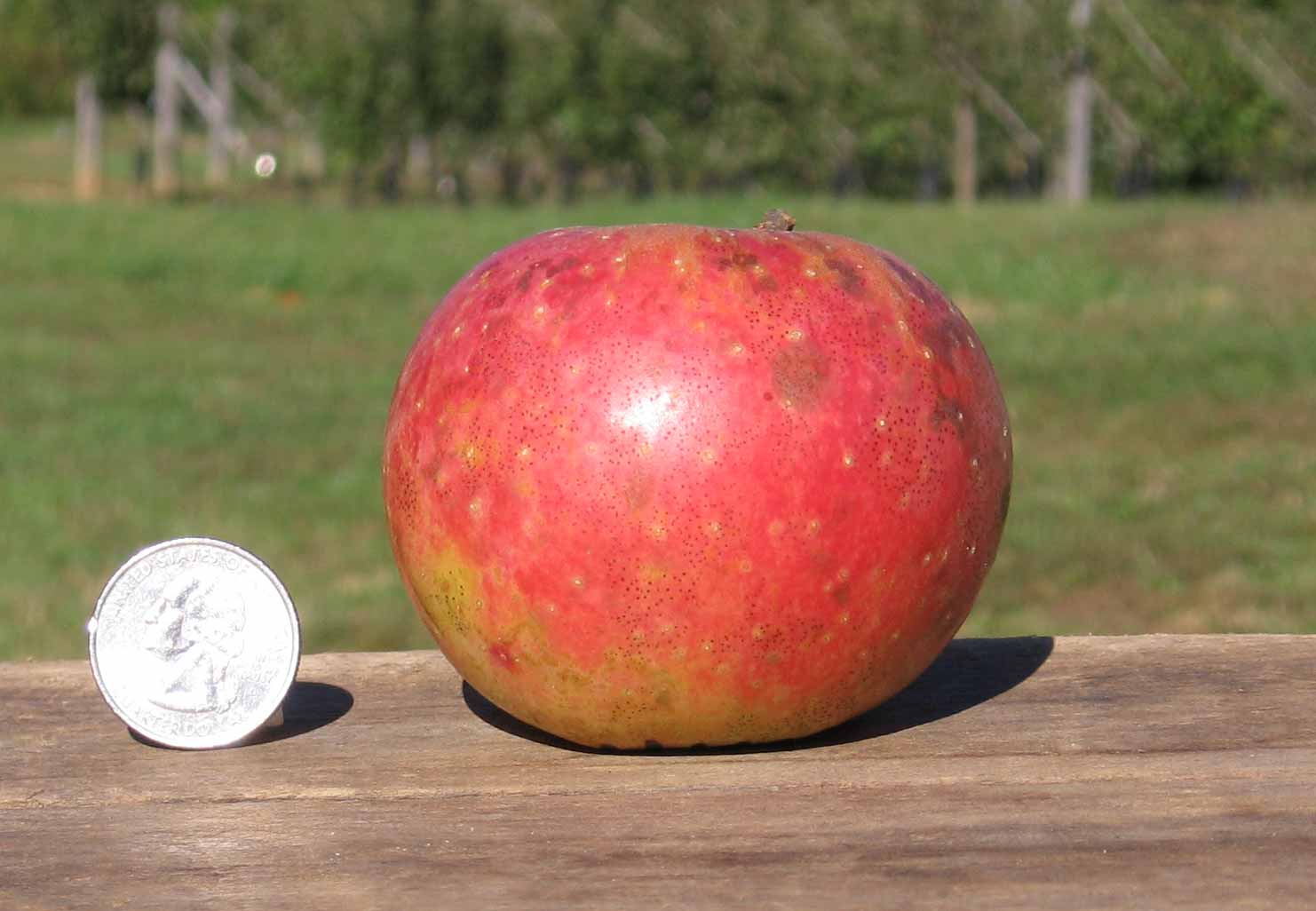
Hunge (this fruit can take the heat of warmer areas)
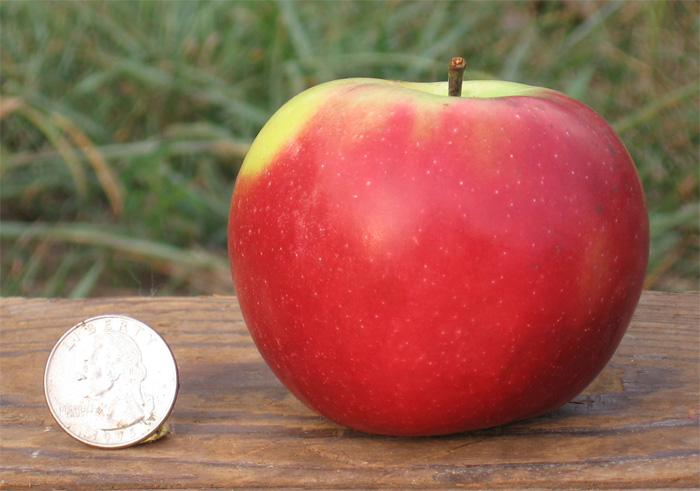
King David (very disease resistant- good resistance to cedar apple rust, fireblight, and scab)---- blooms very late, escapes frosts
September:
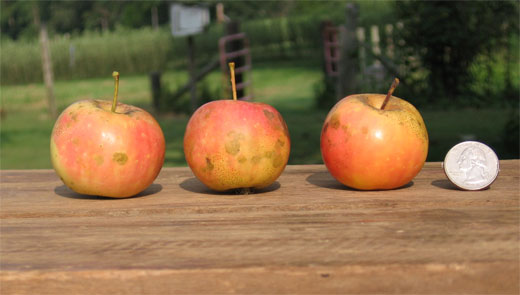
Hewes Crab (hardy tree that produces a lot of small fruit)
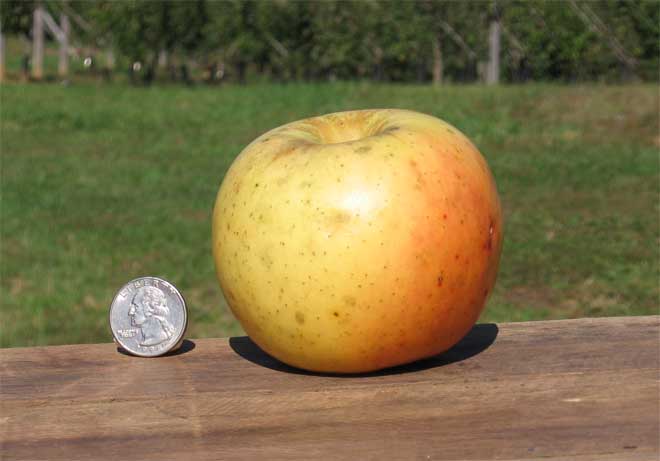
Grimes Golden (long-lived tree that is a good pollinator)
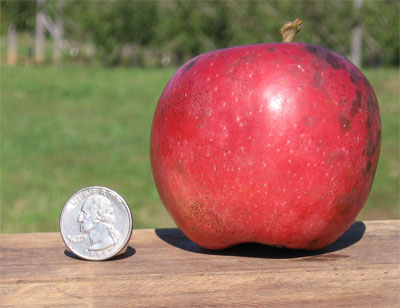
Rebel (tree can produce a lot of fruit some years)

Little Benny (small fruit on a hardy tree)
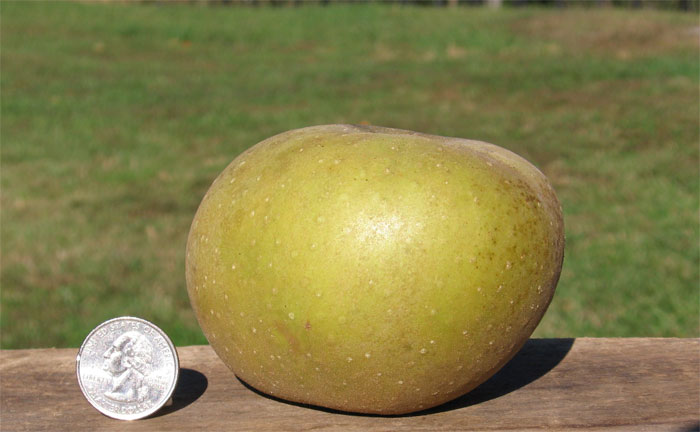
Roxbury Russet (disease resistant tree that produces fruit almost every year)
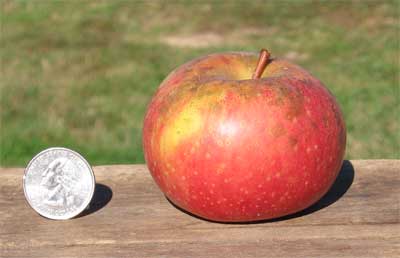
Magnum Bonum (can get cedar apple rust, but resistant to almost everything else, can handle hot climates, and can produce a lot of fruit)
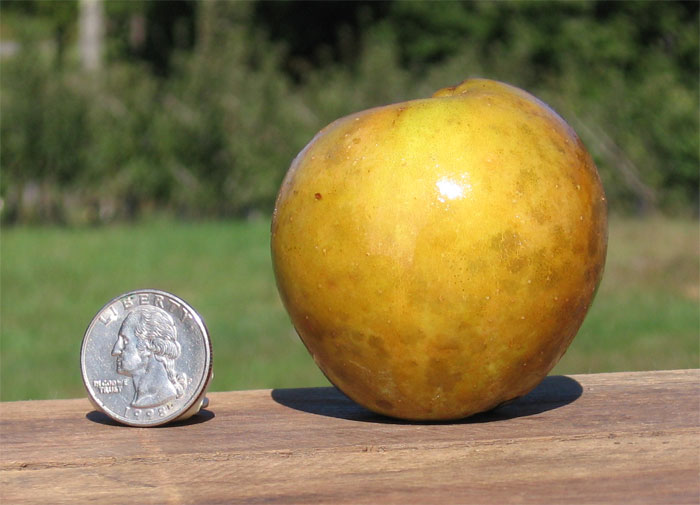
Sweetnin (very hardy tree--very sweet fruit)
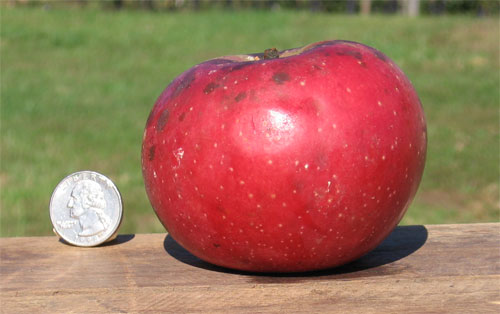
Stayman (very disease resistant, but needs a pollinator)
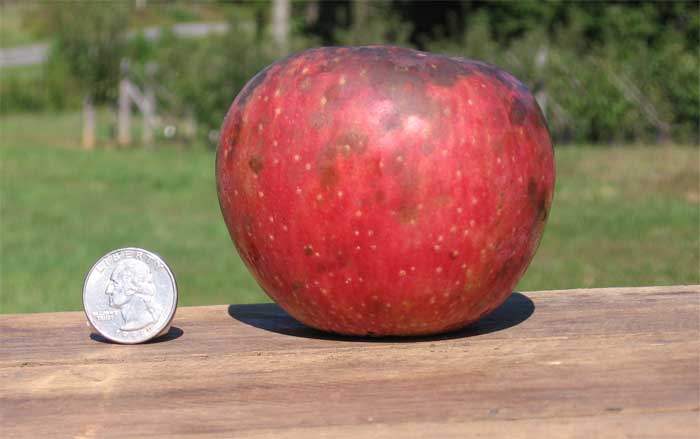
Blacktwig (resistant to cedar apple rust, apples are exceptional tasting)
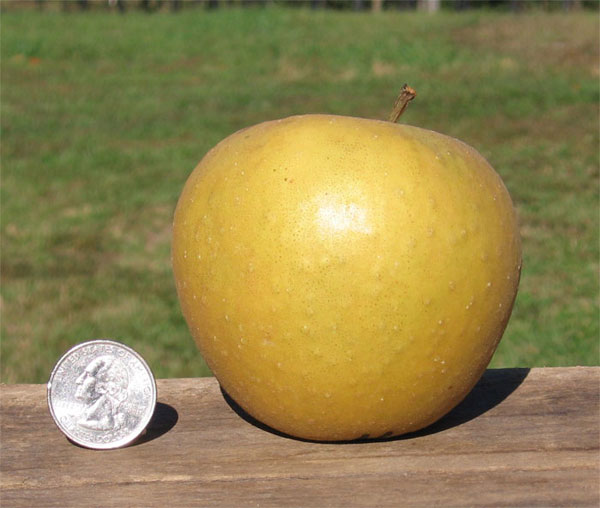
Hopples Antique Gold (prolific bearer... can get cedar apple rust)
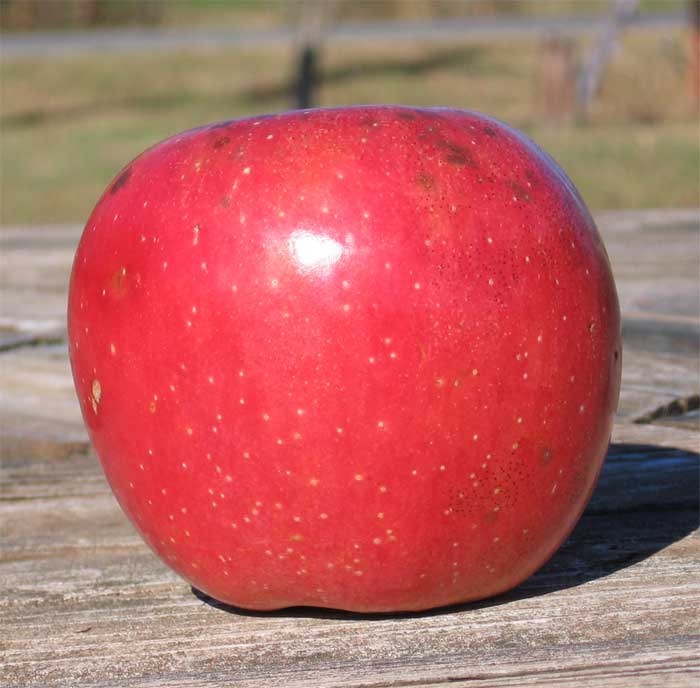
Florina (fruit ripens over several weeeks)

Ashmead Kernal (produces many small, sweet apples)
October:
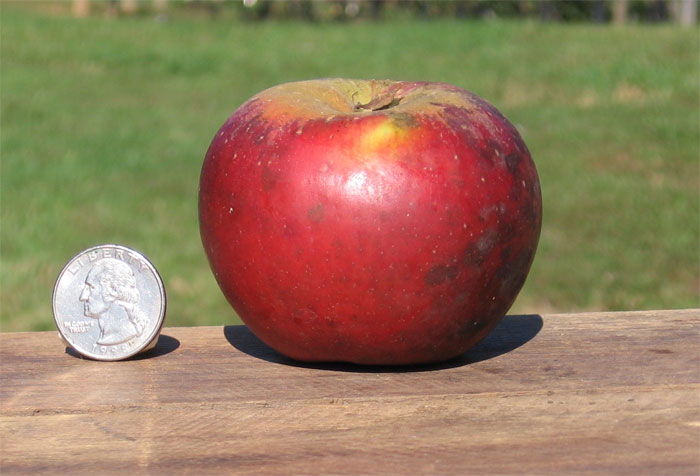
Kinnaird's Choice (exceptional disease resistance)

Enterprise (cedar apple rust resistant, great tatsting apples)
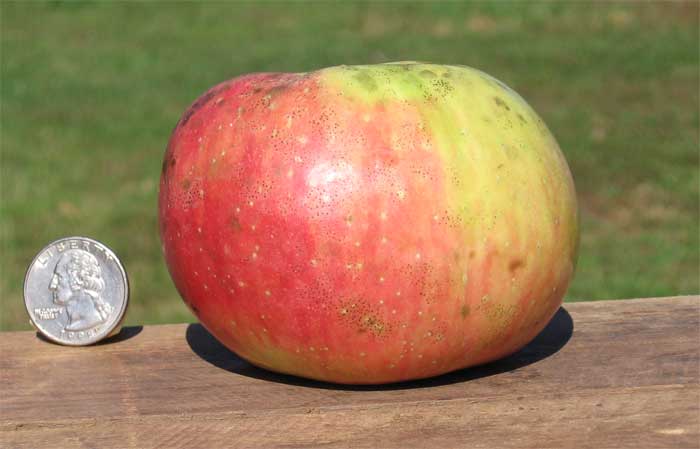
Gragg (disease resistant tree, native to NC mountans)
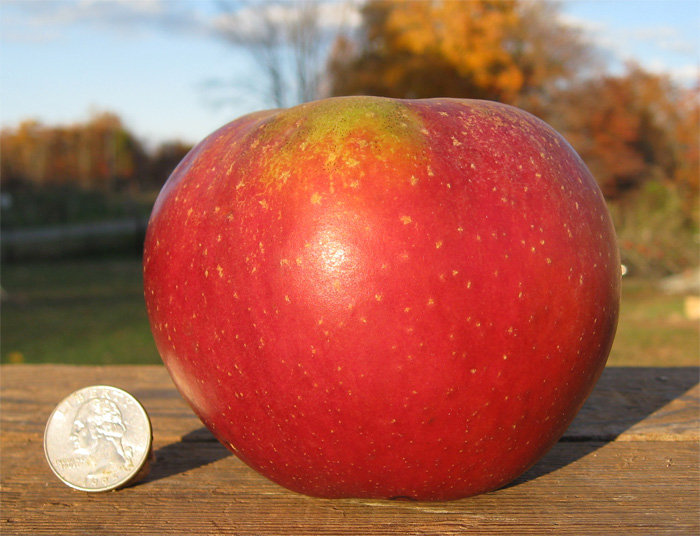
Dula Beauty (good disease resistance, produces very large apples, native to western NC)
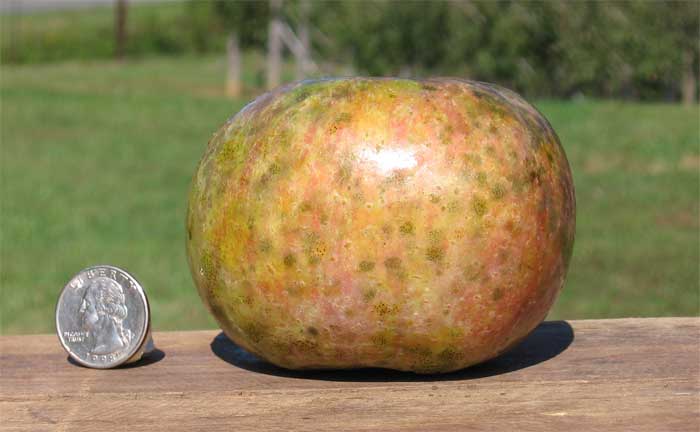
Royal Limbertwig (other than suseptibilty to cedar apple rust, the perfect tree and apple for wildlife.. and humans)
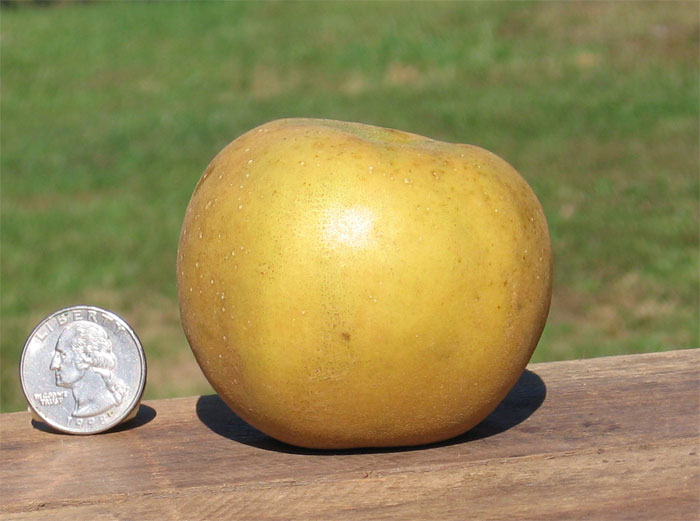
American Golden Russet (very sweet apples, difficult for wildlife to resist, tree can get cedar apple rust)
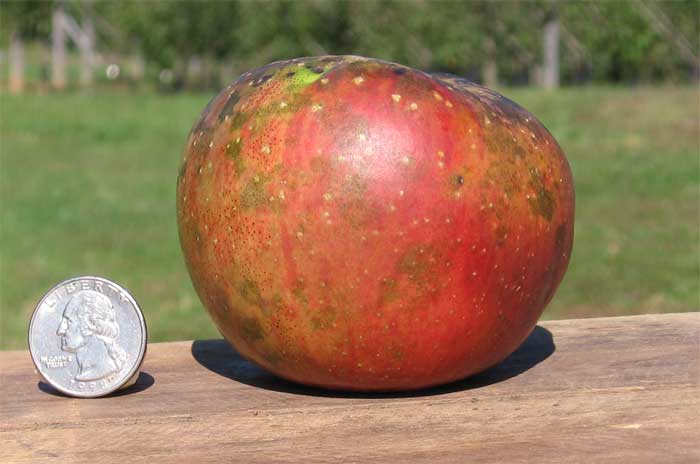
Swiss Limbertwig (very good fruit and grows well in most climates)
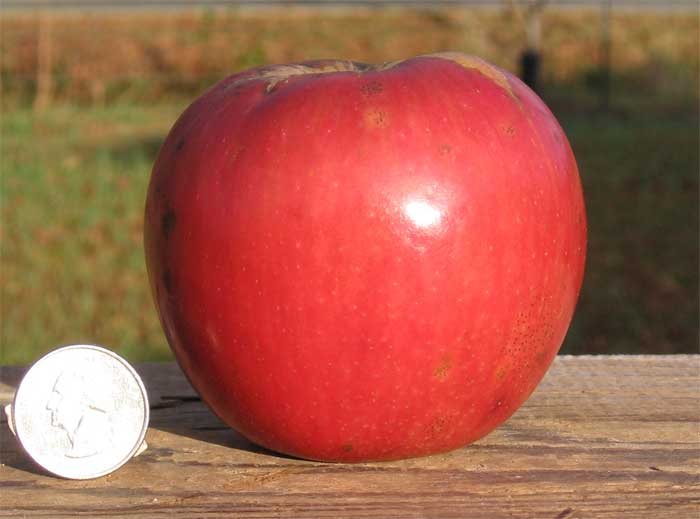
Va. Beauty (exceptional disease resistance and sweet fruit)
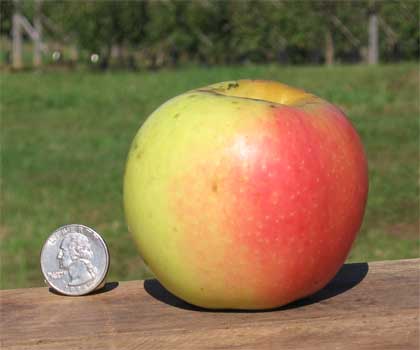
Va. Gold (great pollinator..... fruit is firm..... makes lots of apples)

Joseph's apple (exceptional disease resistance...... above apple was grown organically)
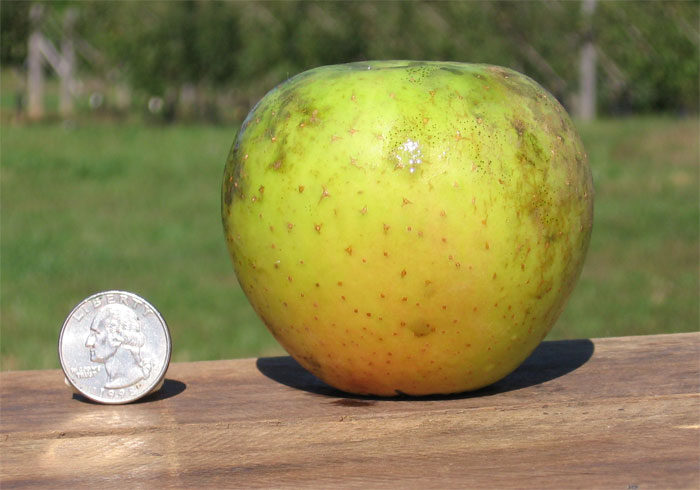
Goldrush (fruit is firm and will last on the ground for weeks after dropping in late Ocober)
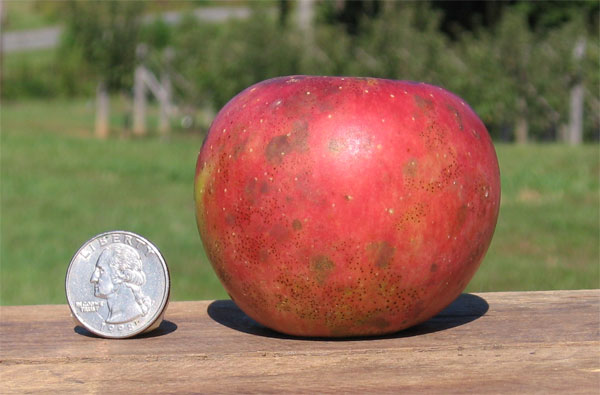
Va. Winesap (exceptional disease resistance..... very good fruit)

Pineapple (fruit is sweet)
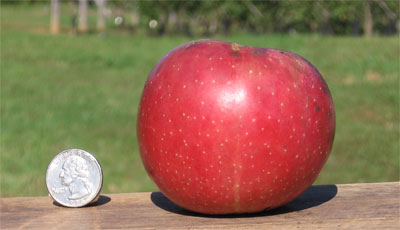
Old Fashioned Winesap (great disease resistance..... larger fruit size than most winesap types)
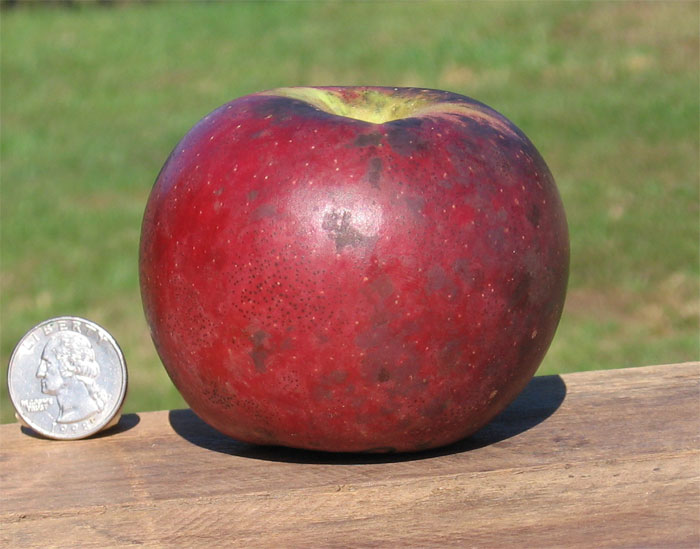
Arkansas Black (very disease resistant, but needs a pollinator-- fruit is very firm and will remain of the ground for a long time)
November:
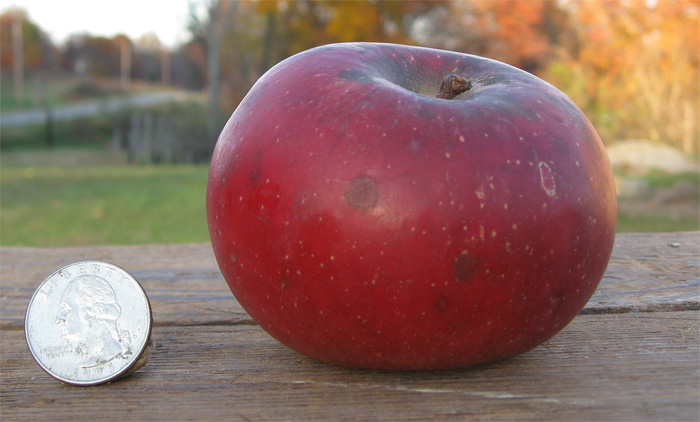
Johnson Keeper (native to Wilkes County, NC... fruit is a good keeper as its name implies)

Perkins (very good fruit of excellent size.... one of the largest apples that ripens in November. Native to Iredell County, NC)
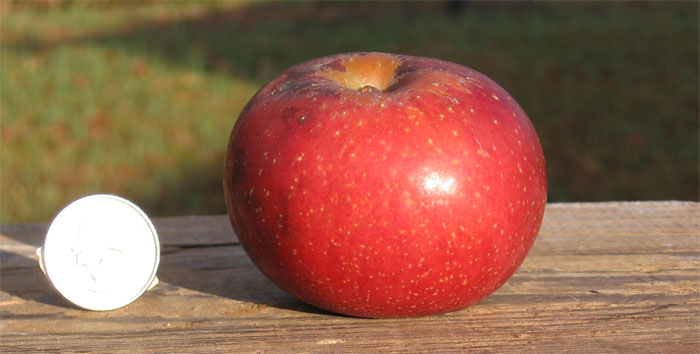
Sparger (small fruit size, ripens very late.... native to northwestern NC)
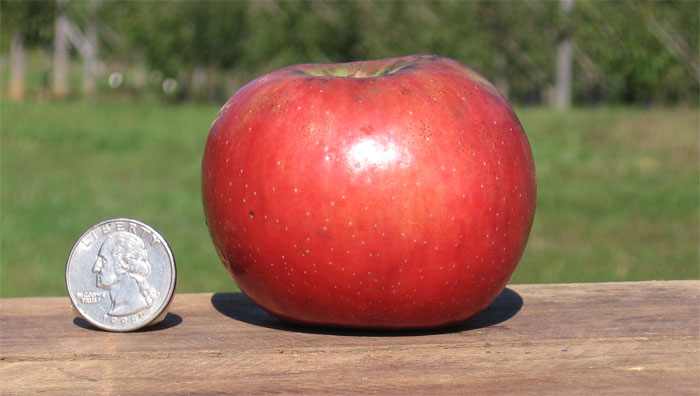
Nickajack (can produce a large amount of sweet fruit every other year)
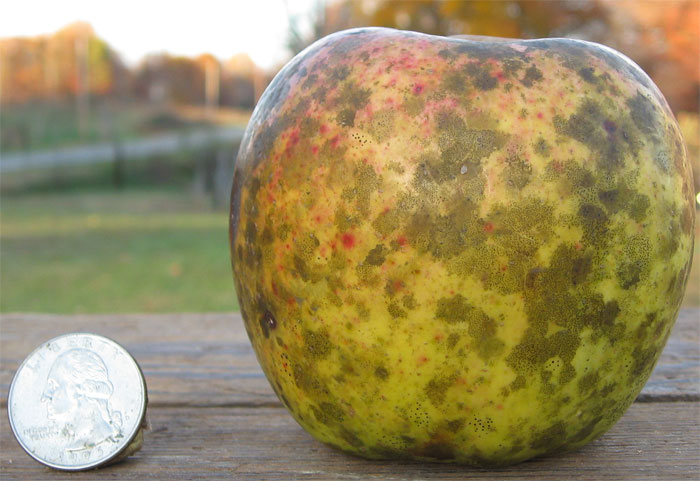
Newtown Pippin (good pollinator, fruit is a great keeper..... tends to drop fruit for several months in warmer climates... not recommended south of northern NC or below 2000 feet if in the southern appalachian mountains)
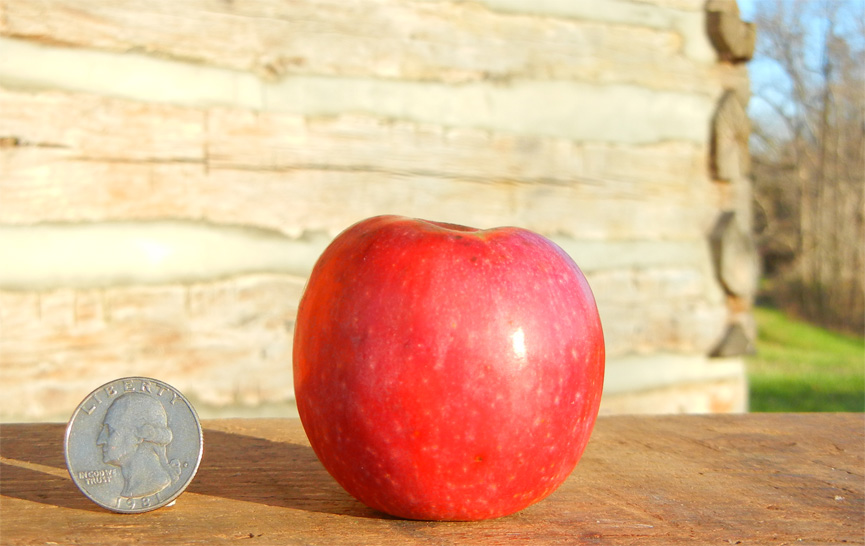
Terry Winter (lates bloomer that bears fruit almost every year...... fruit hangs on tree until mid-November, sweet apples)
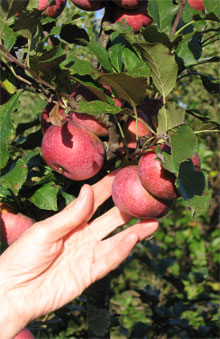
Yates (tree produces a lot of small apples in clusters or bunches.....sweet fruit that is well liked.... ripens early to mid Nov.)
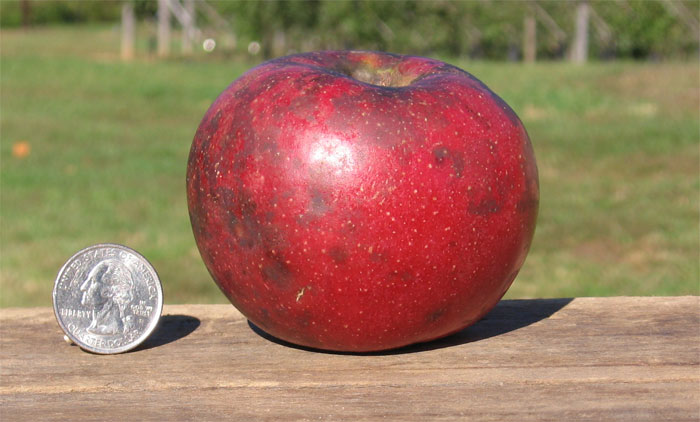
Rockingham Red (highly preferred becasue it "drops" fruit from September to late November)
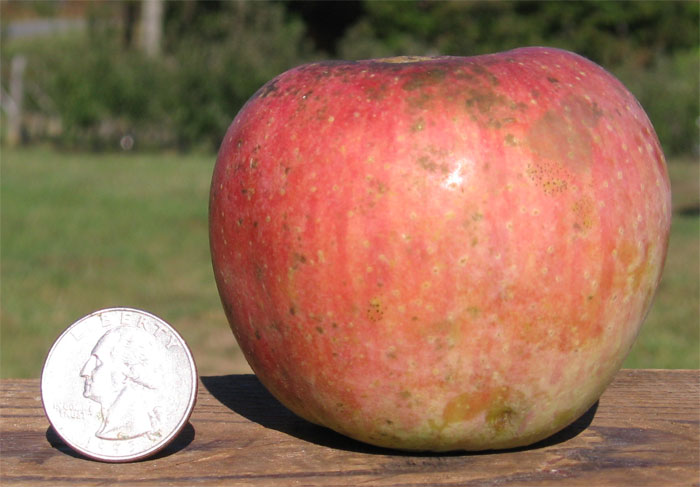
Ralls Janet (extremely late bloomer, often called "Neverfail"......fruit is sweet and in more southern areas is much smaller than fruit pictured here)
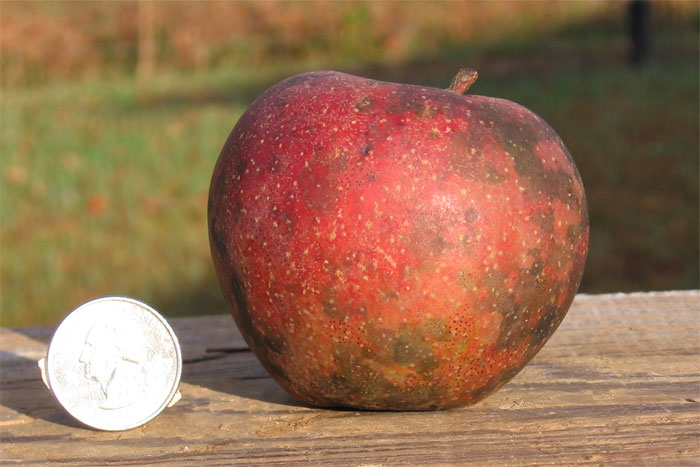
Old Fashioned Limbertwig (hardy tree..... fruit can hang on tree througout November.... very firm, acidic-sweet apples)
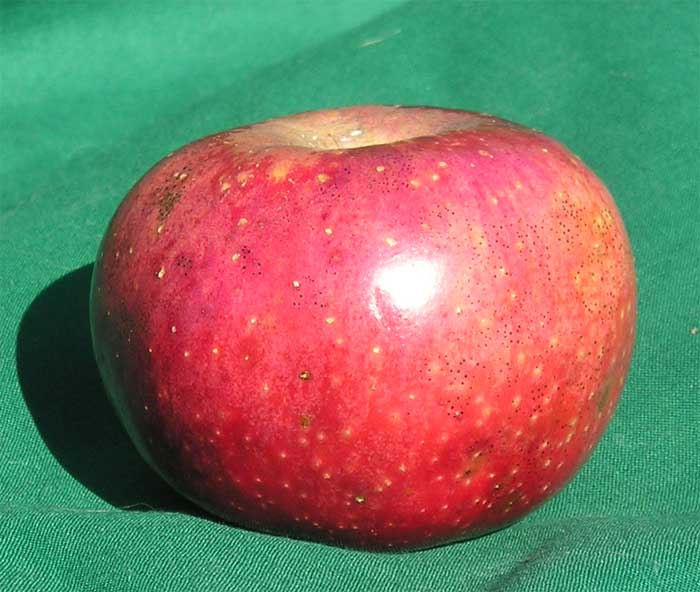
Mattamuskeet (fruit ripens in mid November..... I have discovered these apples under leaves and had a snack in February after 0˙F weather)

Keener Seedling (latest ripening of all my apples..... I have picked at least a few apples from the tree consistantly during the first week of December..... firm, sweet, and dry. )
